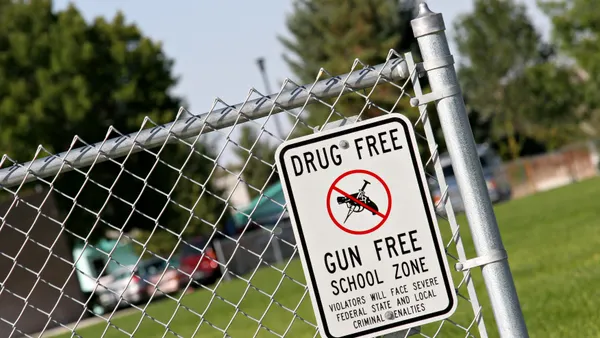Dive Brief:
-
School districts are joining lawsuits filed by Republican state attorneys general — or filing their own — against the U.S. Department of Education's new Title IX rule offering protections for LGBTQ+ students.
-
In Texas, Carroll Independent School District's school board unanimously voted last week to challenge the Title IX rule. In Louisiana, State Attorney General Liz Murrill announced earlier this month that 17 school boards across the state have joined its lawsuit — filed jointly with Montana, Idaho and Mississippi — against the Education Department.
-
The lawsuits come as the U.S. Supreme Court continues to reject cases that could influence schools' Title IX policies by determining whether the anti-sex discrimination law protects LGBTQ+ students.
Dive Insight:
The Title IX rule, finalized in April, earned ire from Republican officials well before it was even released. Several months before the department proposed the new rule in 2022, 15 attorneys general warned the agency to scrap its efforts or face legal challenges.
Making good on that promise, 15 states sued the department in separate lawsuits just weeks after the final rule came out. They claimed the Education Department was “arbitrary and capricious” in finalizing the Title IX rule and had acted outside its powers under the Constitution.
Just as quickly, many of the same Republican states also warned their school districts to disregard the rule, advising that legal proceedings would take their course and that any changes made under the federal regulation in the meantime could conflict with state laws. Education departments in those states are expecting the legal challenges to result in a temporary — and then permanent — injunction.
Educators have looked to the courts for years for guidance on applying Title IX for LGBTQ+ students. Now, the Biden administration's new rule has brought the issue to the forefront, renewing expectations that the Supreme Court will soon weigh in on LGBTQ+ rights in schools.
On multiple occasions thus far, the Supreme Court has avoided the question of whether Title IX protects LGBTQ+ rights.
In 2020, when the Supreme Court decided a landmark case interpreting an anti-sex discrimination law as protecting LGBTQ+ individuals in workplaces, it specifically declined to address transgender students' rights in public schools.
A year later in 2021, it declined to hear another high-profile case on transgender students' access to school facilities that arose from a 2015 lawsuit in Gloucester County, Va.
Earlier this year, the Supreme Court declined to consider a case over transgender students' bathroom access in an Indiana school district.
And more recently, on May 20, justices declined a case against Maryland's Montgomery County Public Schools over its transgender student inclusion policies.
With the Supreme Court not opting to hear such cases, Title IX and LGBTQ+ policies remain split nationwide.
According to the most recent data from the Movement Advancement Project, 27 states either have no law protecting LGBTQ+ students from bullying or explicitly prevent schools and districts from adding LGBTQ+ protections to their anti-bullying policies. On the other hand, 21 states and the District of Columbia have laws prohibiting bullying on the basis of sexual orientation and gender identity.














